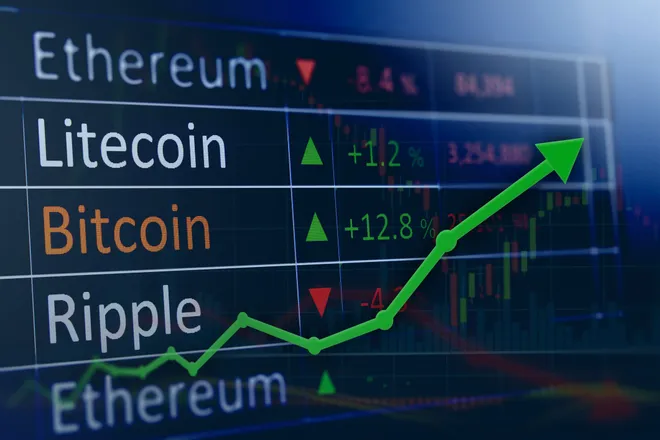In recent months, the United States (US) economy has been gripped by growing concerns of a looming recession, driven by a significant uptick in interest rates and heightened market volatility. This shifting economic landscape, characterized by surging interest rates, escalating oil prices, and a stronger dollar, is challenging the prevailing belief in a soft landing for the US economy.
The Ripple Effect on Cryptocurrencies:
Interestingly, a potential US recession could have far-reaching implications for the cryptocurrency market. Investors, seeking refuge in alternative assets, may turn to cryptocurrencies, leading to increased adoption. Additionally, the prolonged delays in the approval of crypto-related bills by the US Securities and Exchange Commission (SEC) might be alleviated under these circumstances.
Are We Heading for a 2024 Recession?
In just the past two weeks, the yield on the crucial US 10-year bond has witnessed a sharp increase of approximately 0.5 percentage points, reaching around 4.8 percent. This surge is part of a broader trend in the overall interest rate structure.
Since the end of June, yields have experienced a staggering one-percentage-point shift, resulting in higher borrowing costs for corporations, more burdensome household car loans, and noticeable fluctuations in deposits within the banking system as investors seek refuge in money market accounts. Notably, 30-year mortgage rates are approaching the 8 percent mark, further straining an already costly housing market.
Global Implications:
These rising interest rates also have global repercussions, making financing more expensive and less predictable internationally. For Japan, this complicates its exit from an unsustainable monetary policy, potentially affecting the US.
The surge in yields is primarily driven by market expectations of the Federal Reserve maintaining higher policy rates for an extended period, coupled with the need to absorb a significant supply of Treasury bonds due to substantial budget deficits.
Adding to this mix are elevated oil prices, stemming from robust demand, ongoing production cuts by OPEC+ nations, and dwindling inventories. This poses a substantial risk of broader inflation across various sectors.
Challenges Ahead:
These developments present challenges for both the economy and the financial markets. They dampen economic growth prospects and heighten the risk of stagflation. Concerns about financial stability emerge due to interest rate mismatches within certain banks, refinancing requirements in the financial sector, and the potential for credit disruptions.
While financial markets are adapting swiftly to higher rates, the real economy is still in the early stages of adjustment, suggesting a potentially turbulent road ahead in the coming year.
Good news for the cryptocurrencies
- During a recession, people lose trust in traditional financial institutions and government-backed currencies, making cryptocurrencies an appealing alternative for storing wealth.
- Cryptocurrencies, like Bitcoin, are decentralized and not controlled by any single government, making them attractive hedges against inflation during economic downturns.
- Investors often turn to alternative asset classes during recessions, and cryptocurrencies with their potential for high returns become an attractive option.
- The SEC has been cautious about approving a spot Bitcoin ETF, but a recession might prompt faster approval of crypto-related regulations, increasing confidence in cryptocurrency transactions.
- Stablecoins, which are tied to traditional assets like the US dollar, can play a significant role in a recession by providing a stable value for investors seeking to preserve capital.
- The demand for stablecoins may increase during a recession as investors look for ways to mitigate risk while still participating in the digital economy.
- The impact of a recession on the crypto market remains uncertain, but it presents potential opportunities for cryptocurrency adoption.
- The resilience of the crypto market will be tested during a recession, challenging the idea of cryptocurrencies as a hedge against traditional market instability.
- Traditional financial systems may face decreased trust during a recession, driving more interest in decentralized cryptocurrencies.
- Regulatory changes during a recession could create a more stable and secure environment for cryptocurrency transactions, boosting confidence among potential investors and users.
In conclusion, the US economy is navigating uncertain waters, and the impact on cryptocurrencies and traditional financial institutions remains to be seen as the nation grapples with the challenges posed by rising interest rates and economic volatility.
Disclaimer: This article is for informational purposes only and does not constitute financial or investment advice. Consult a qualified financial advisor before making any investment decisions. Investing involves risks, and past performance is no guarantee of future results. The author and the website bear no responsibility for reader actions based on the information provided





